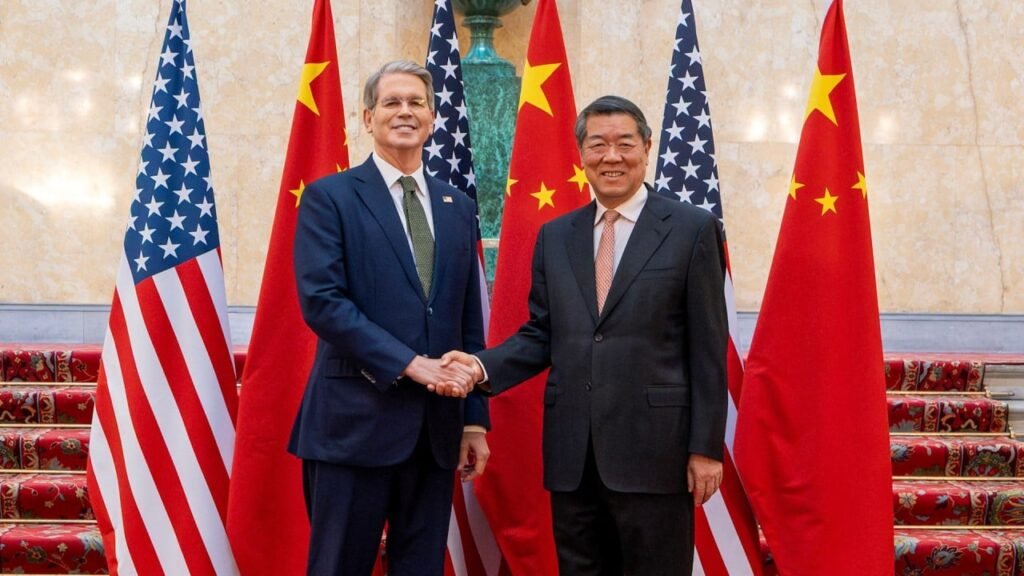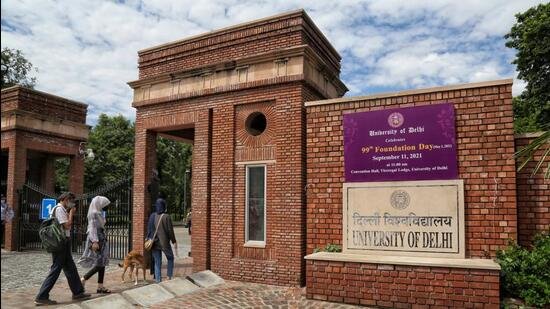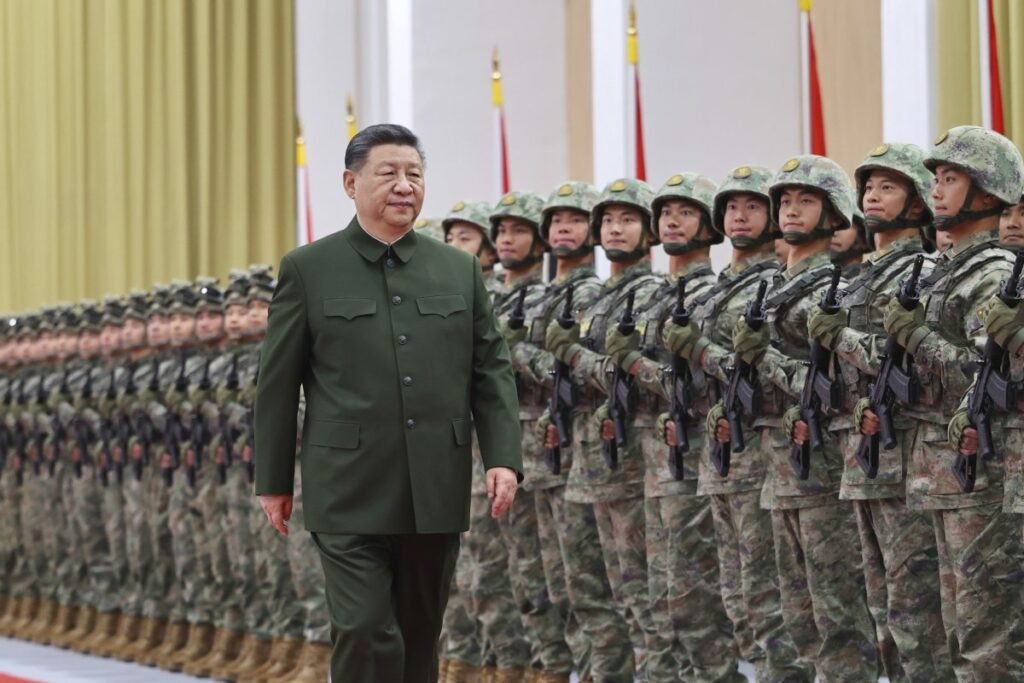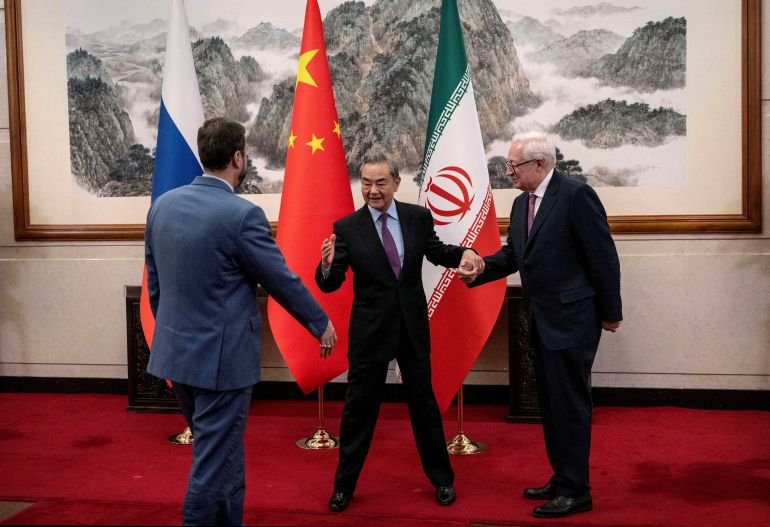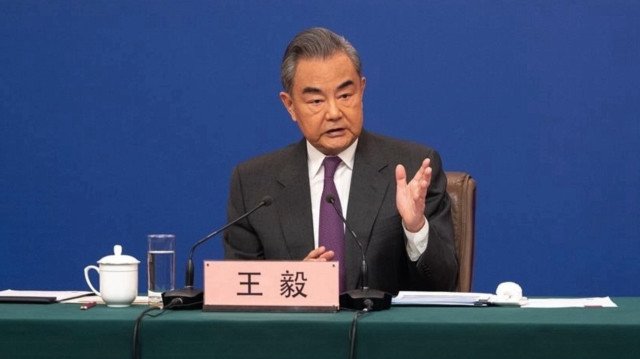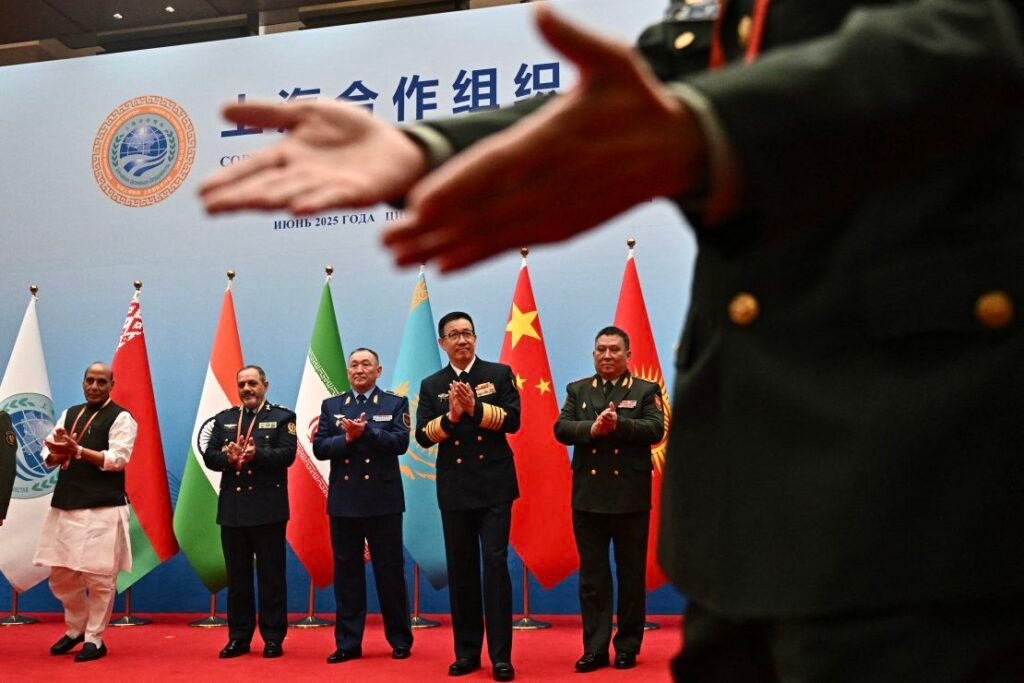Defence Minister Rajnath Singh’s decision meant the ten-member bloc, which includes Pakistan, China, and Russia, did not issue any final declaration. The divergence, officials said, came down to the way terrorism was addressed in the draft.
“No place for double standards”: Singh targets Pakistan
Rajnath Singh delivered a blunt message on terror financing and safe havens. Without naming Pakistan directly, he said, “Some countries use cross-border terrorism as an instrument of policy and provide shelter to terrorists. There should be no place for such double standards. SCO should not hesitate to criticise such nations.”
He reminded the room of the April 22 terror strike in Jammu and Kashmir.
“On April 22, 2025, the terror group ‘The Resistance Front’ carried out a dastardly and heinous attack on innocent tourists in Pahalgam in the Indian state of Jammu and Kashmir,” he said. “Twenty-six innocent civilians, including a Nepali national, were killed.”

Live Events
“Victims were shot at after they were profiled based on their religious identity. The Resistance Front, which is a proxy of UN-designated terror group Lashkar-e-Taiba, claimed responsibility for the attack.”Singh’s statement drew a straight line between that incident and India’s larger complaint: that terrorism is still being weaponised by states for political purposes.
India responded with ‘Operation Sindoor’
India’s reaction to the Pahalgam killings came swiftly. Singh said New Delhi invoked its right to self-defence.
“The pattern of the Pahalgam terror attack matches with LeT’s previous terror attacks in India. In exercising its right to defend against terrorism and pre-empt as well as deter further cross-border terrorist attacks, India, on May 7, 2025, successfully launched ‘Operation Sindoor’ to dismantle cross-border terrorist infrastructure.”
He underlined the government’s broader policy.
“India’s zero tolerance for terrorism is manifest today through its actions. This includes our right to defend ourselves against terrorism. We have shown that epicentres of terrorism are no longer safe and we will not hesitate to target them.”
Singh also warned about ideological threats.
“We should also take proactive steps to prevent the spread of radicalisation among our youth.”
Defence Minister briefed on ground situation before departure
Before travelling to Qingdao, Singh met senior Army commanders in Udhampur. The briefing focused on security in Jammu and Kashmir, especially in light of border vulnerabilities, recent terror strikes, and preparations for the Amarnath Yatra.
Among those present were Chief of the Army Staff General Upendra Dwivedi and Northern Command chief Lt Gen Pratik Sharma. Commanding officers from all deployed units in the region were also involved.
Bilateral meeting with China: First since Galwan
Singh’s visit also marked the first by an Indian defence minister to China since the June 2020 Galwan Valley clash. He held bilateral talks with Chinese Defence Minister Admiral Dong Jun.
The two reportedly discussed military communication mechanisms, including the possible resumption of the India-China hotline to avoid future border flare-ups. Though no major breakthrough was announced, the meeting was seen as a signal that dialogue remains open despite enduring tensions.
India’s refusal to sign the Qingdao statement aligns with earlier decisions at multilateral platforms. At the 2023 SCO summit, New Delhi declined to endorse language supporting China’s Belt and Road Initiative. Similarly, India opposed Beijing’s attempt to introduce a BRICS currency basket.
Through these moves, India has consistently signalled that strategic autonomy is non-negotiable—even when it means standing alone in the room.


